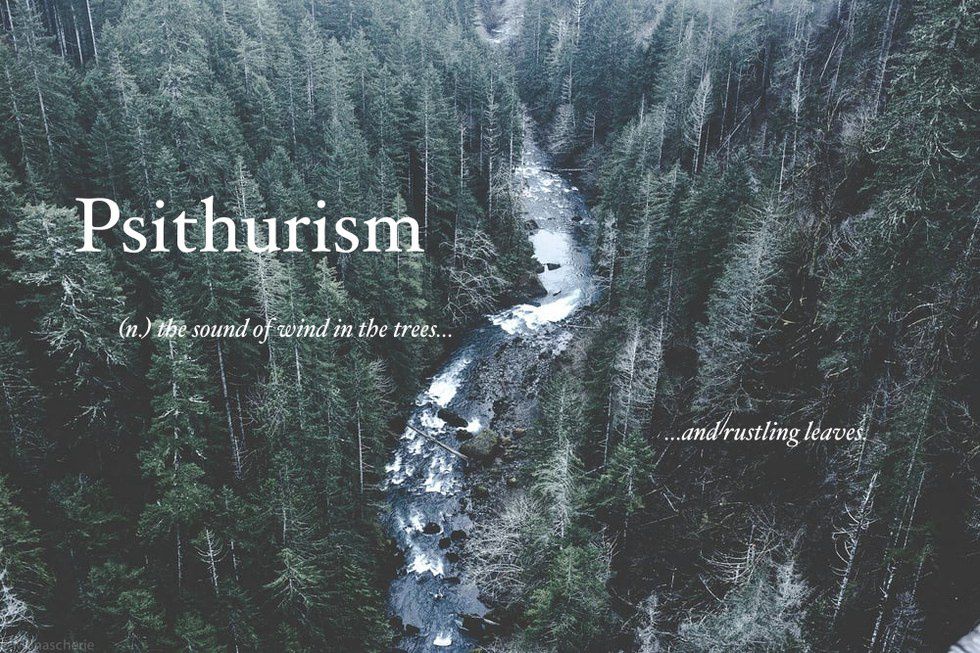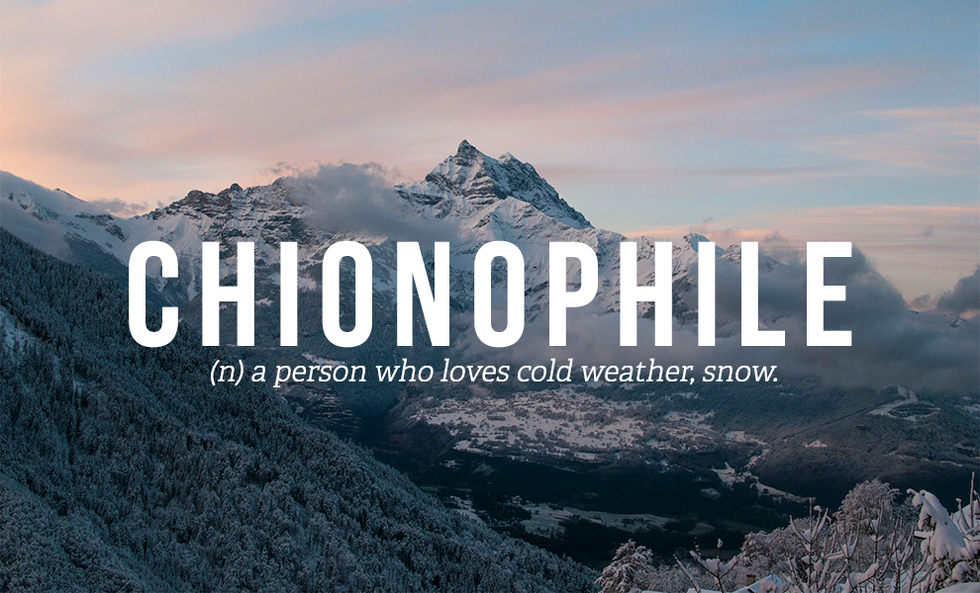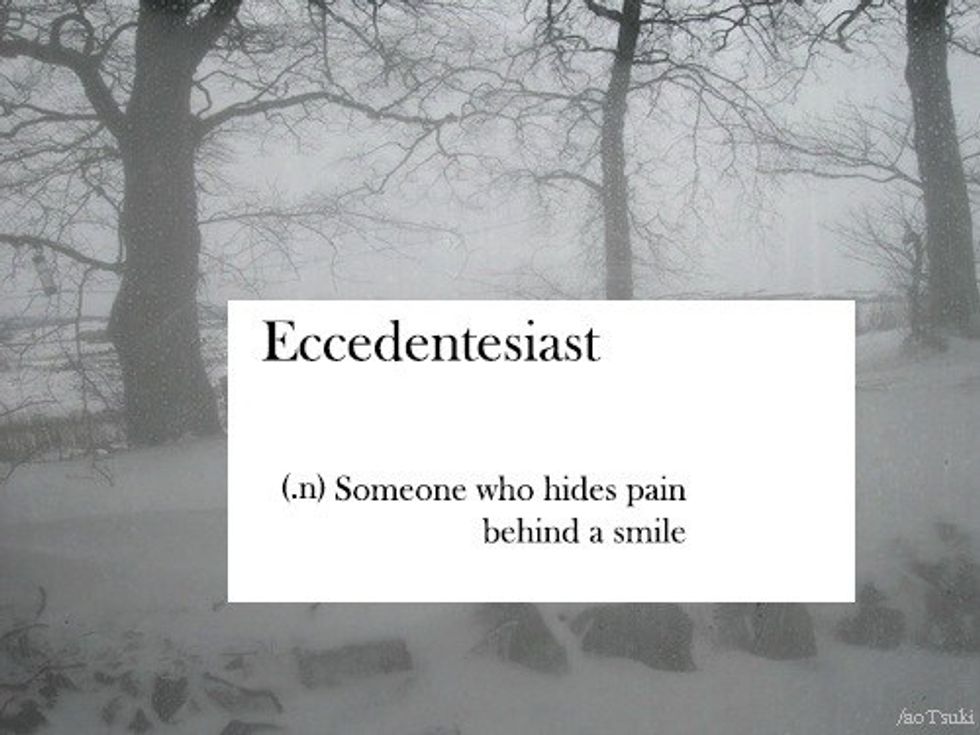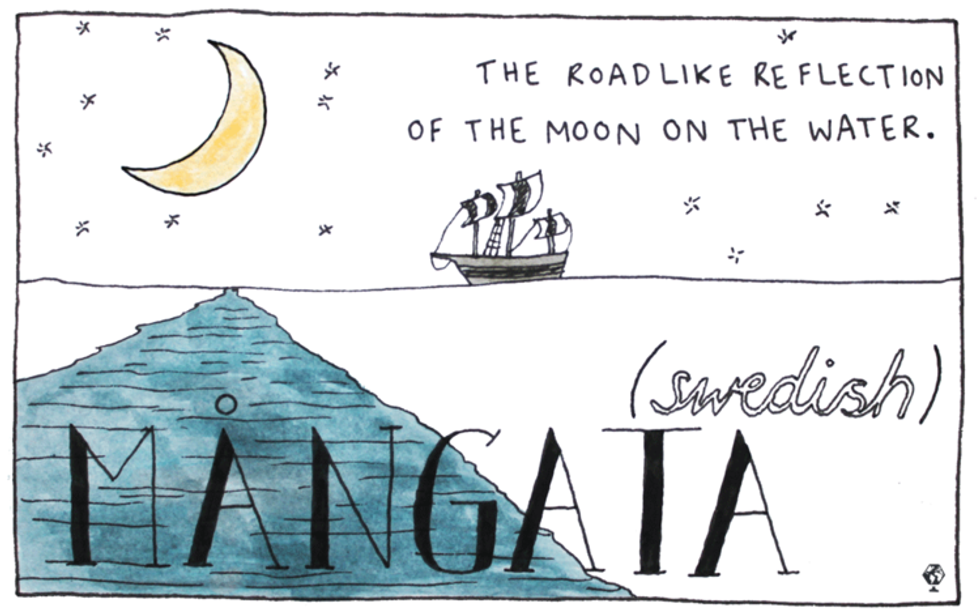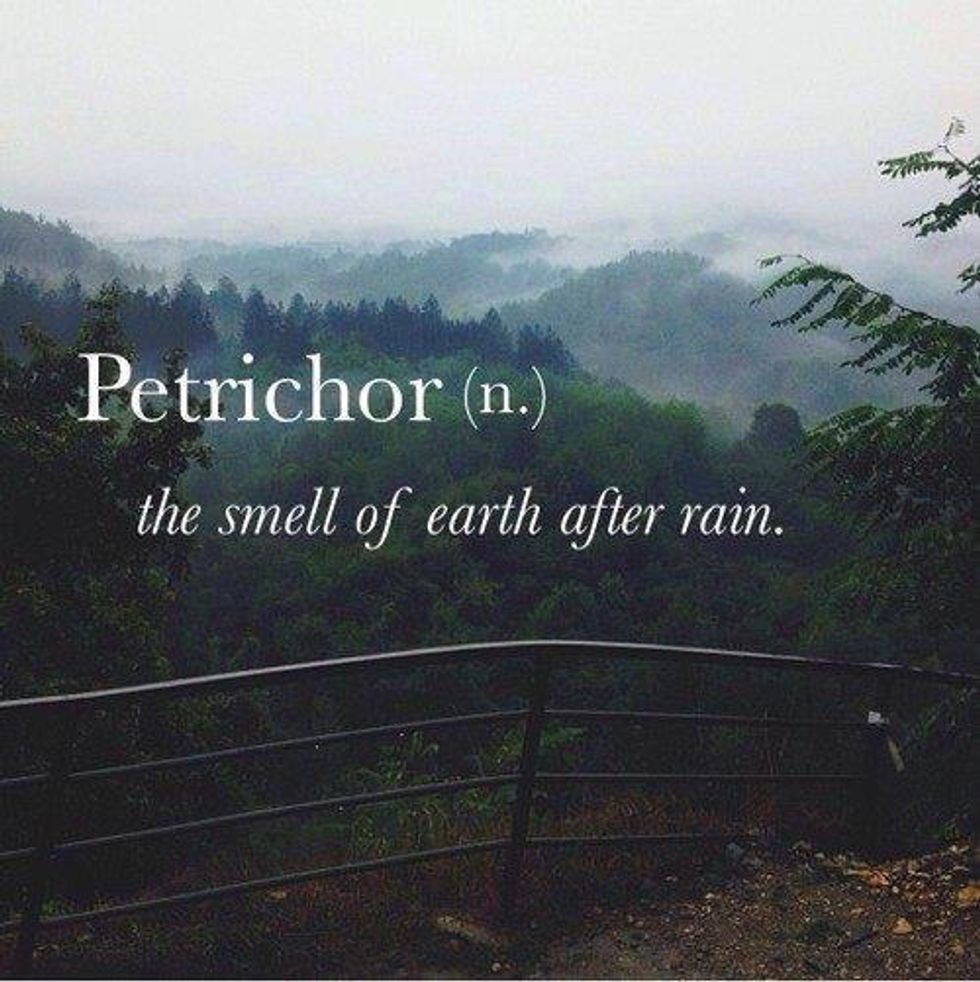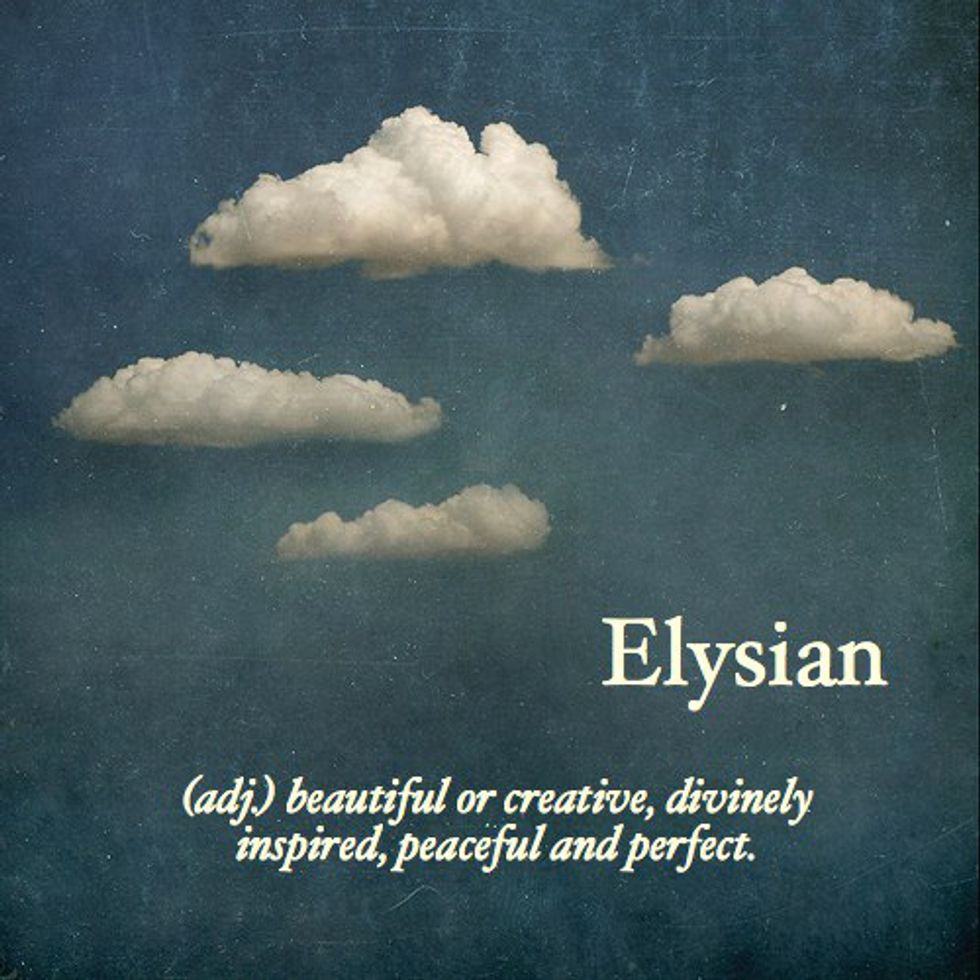Whether you're looking to expand your vocabulary or just searching for the perfect photo to pin to your Pinterest board, these beautiful words from across the globe- paired with gorgeous images from across the internet- are sure to enthrall both the Logophile (lover of words) and the Aesthete (lover of art and nature's beauty).
1. Tsundoku (積ん読)
tsUn-dO-ku | Japanese
The first half of 積ん読 (tsundoku) comes from the word 積んでおく (tsundeoku), which means “to pile things up and leave them.” The second half (doku) comes from 読書 (dokusho) which means “reading.” Essentially, it’s a combination of the words tsundeoku (to pile things up and leave them) and dokusho (reading).
- Tofugu
2. Sonder
sAWn-dur | German, French, and Afrikaans origins.
n. the realization that each random passerby is living a life as vivid and complex as your own—populated with their own ambitions, friends, routines, worries and inherited craziness—an epic story that continues invisibly around you like an anthill sprawling deep underground, with elaborate passageways to thousands of other lives that you’ll never know existed, in which you might appear only once, as an extra sipping coffee in the background, as a blur of traffic passing on the highway, as a lighted window at dusk.
- The Dictionary of Obscure Sorrows
3. Mellifluous
məˈliflo͞oəs | Middle English
Originated in the late 15th century from late Latin mellifluus. (mel ‘honey’ + fluere ‘to flow’) + -ous)
4. Waldeinsamkeit
VALD-eye-n-zam-kite | German
From Wald (forest) + Einsamkeit (solitude).
5. Psithurism
SITH-ur-iz-m | English
An adaptation of the Ancient Greek ψιθυρίζω (psithurízō, “I whisper”).
6. Chionophile
KY-en-O-file | English
From Ancient Greekχιών (khiṓn, “snow”) + -phile
7. Eccedentesiast
EX-uh-DENT-es-E-ast | English
It is a term that is normally used to define people who go in front
of the camera and have to fake a smile for the sake of the audience.
The term is suspected to have first been coined by Florence King,
an American Novelist and writer for the National Review.
She referred to this term in her column ‘The Misanthrope’s Corner’
when talking about politician’s and tv hosts.
- The World in Writing
8. Goya (گویا ) 
GOY-ah | Urdu
Urdu is the national language of Pakistan, but is also an official language in 5 of the Indian states. This particular Urdu word conveys a contemplative 'as-if' that nonetheless feels like reality, and describes the suspension of disbelief that can occur, often through good storytelling. - Maptia
9. Saudade

souˈdädə | Portuguese
Saudade is like nostalgia but with the hope that what is being
longed for might return, even if that return is unlikely or so distant in the future to be almost of no consequence to the present.
- bystander.homestead.com
10. Koselig
KO-si-leh | Norwegian
Danish hygge, Swedish mys, and Norwegian kos all describe roughly the same thing. We often try to translate it into words such as “nice” or “cozy,” but those only describe parts of what is “kos” or “koselig.”
Kos means cuddling with your friend. Kos means being snowed in at your cabin in the mountains, in front of a roaring fire with cocoa, pastries, and a good crime novel.
- Matador Network
11. Mångata
MWAN-gah-tah | Swedish
Originated in 1890. From måne (“moon”) + gata (“street, road”).
12. Hikikomori
hi-ki-kuh-MORE-ay | Japanese
A state that has become a problem by the late twenties, that
involves cooping oneself up in one’s own home and not participating
in society for six months or longer, but that does not seem to have another psychological problem as its principal source.
Tamaki Saitō
13. Petrichor (pɛtrᵻkɔər/)
peˌtrīkôr | Greek
pɛtrᵻkɔər is the earthy scent produced when rain falls on dry soil. The word is constructed from the Greek word petra (stone) + ichor (the fluid that flows in the veins of the gods in Greek mythology).
14. Gluggaveður![]()
glū-gah-VETH-ur | Icelandic
Refers to the type of weather best enjoyed indoors.
15. Elysian
iˈliZHən,iˈlē- | Ancient Greek
Derived from Elysium,"Ἠλύσιον πεδίον," which was the Ancient Greek conception of the afterlife. Elysian in English is adjective that relates to heaven or paradise.
Have any other words you're dying to share? Comment below your favorite phrases and join the conversation.








